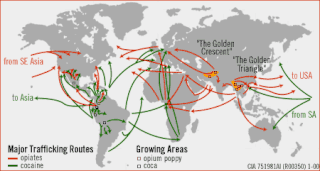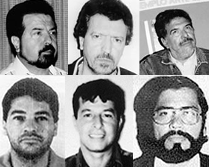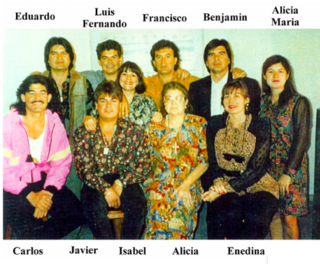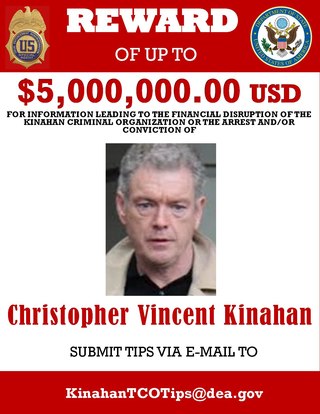This article has multiple issues. Please help improve it or discuss these issues on the talk page . (Learn how and when to remove these template messages)
|

Jeffrey Robinson (born October 19, 1945) is an American author of 30 books.
This article has multiple issues. Please help improve it or discuss these issues on the talk page . (Learn how and when to remove these template messages)
|

Jeffrey Robinson (born October 19, 1945) is an American author of 30 books.
Born in Long Beach, New York, Robinson is a graduate of Temple University in Philadelphia (1967). While still at school, he wrote for television and radio, including a weekly children's show, and was on the writing staff of The Mike Douglas Show, a nationally televised daily talk show. He continued working in the media during his four-year stint as an officer in the United States Air Force. Charged with running a press and public relations office for five generals at the height of the Vietnam War, he hosted a weekly talk show, scripted and directed several film projects, wrote short stories for national magazines and moonlighted as a disc jockey on local radio. [1] [ failed verification ]
His magazine credits include Playboy , McCalls , Barron's , Gourmet , Ambassador , True , Mademoiselle , Reader's Digest and TV Guide ; his newspaper credits include The New York Times ; [2] [3] The Washington Post , The San Francisco Examiner , The Christian Science Monitor and the International Herald Tribune . [4] [ failed verification ] In Britain his feature journalism has appeared in The Times , The Sunday Times , The Sunday Telegraph , Independent on Sunday and The Mail on Sunday , among others.
He moved to the UK in 1982, with more than 600 published stories and articles to his credit[ citation needed ], to concentrate on writing books. In 2007, he returned to New York and now divides his time between the US and the UK.
Considered "one of world's leading experts on international financial crime" [5] [6] [7] Robinson wrote his 1995 investigative tour de force, The Laundrymen, [8] in which he uncovered the true extent of global money laundering. The book reveals how hundreds of billions of dirty dollars are derived mainly from the drug trade, then reinvested throughout the world by otherwise legitimate businessmen, lawyers, accountants and bankers. Business Week described it as "[a]n indictment of governments and banks". [9]
Robinson scripted and hosted several television documentaries, including one for the BBC, [10] [11] and another for Arte in France and Germany. [12] Both have been shown in the United States.
In 1998, he published a sequel to The Laundrymen, titled The Merger – How Organized Crime is Taking Over The World. In it, Robinson described the disturbing lengths that transnational organized criminals go in order to build multi-national corporations; [13] explained why organized crime is the major beneficiary of globalization; [14] and claimed that transnational organized criminals have become the most powerful special interest group on the planet. [15] [16] [17]
Five years later he published another book in this series: The Sink, about crime, terrorism and dirty money. [18] [19]
Between 1986–1994, he published three biographies: Yamani – The Inside Story, about Saudi Arabia's former Minister of Oil Ahmed Zaki Yamani; [20] [21] Rainier & Grace, written about and with the cooperation of Monaco’s sovereign family and reissued in 2014 as Grace of Monaco after the fictionalized 2014 French biopic of Grace Kelly's life; and Bardot – Two Lives, also written with the cooperation of Brigitte Bardot. [22]
His other non-fiction titles include: The Risk Takers (his first UK best seller) which highlighted the high-fliers of City finance, recounting their tales of money, ego and power; The Minus Millionaires, a sequel to The Risk Takers, in which he wrote about ‘risk takers’ who had lost fortunes; The End of the American Century, for which Robinson gained access to secret archives in the former Soviet Union to reveal hidden agendas of the Cold War; The Hotel, stories gathered over five months as a fly on the wall in what is, arguably, the best hotel in the world; The Manipulators – A Conspiracy to Make Us Buy, exposing the marketing world’s "hidden persuaders" 40 years after Vance Packard; and Prescription Games, an insider’s view of the global pharmaceutical industry, where science and marketing are deliberately kept apart and where, all too often, profit dictates who lives and who dies.
In 2005, he wrote his first "as told to" with an old college friend, Joseph Petro: Petro's autobiography, Standing Next to History – An Agent's Life Inside the Secret Service . [23] In 2007, Robinson co-authored Ronnie Wood's autobiography, documenting Wood's years as a rock star and member of the most famous band in the world, The Rolling Stones. [24] In 2009, he published his third "as told to": Leading From The Front, co-written with British entrepreneur, Gerald Ronson. [25]
His treatise on fraud, There's a Sucker Born Every Minute – A Revelation Of Audacious Frauds, Scams, And Cons – How To Spot Them, How To Stop Them was published in 2010. [26]
The Takedown, subtitled "A Suburban Mom, A Coal Miner's Son and the Unlikely Demise of Colombia's Brutal Norte Valle Cartel", was released in August 2011. [27] [28] [29] [30]
Jeffrey Robinson's Criminal Intent – Following The Money, the first in a series of eBooks on dirty money, crime, fraud and corruption was published in 2012.
The second book in this series, Jeffrey Robinson's Criminal Intent – The Swiss Wash Whiter was published in 2013.
Robinson has written six novels: [31] Pietrov and Other Games; The Ginger Jar; The Margin of the Bulls; The Monk’s Disciples; A True and Perfect Knight (under film option); and Trump Tower . [32] [33] [34]
Robinson has appeared on NBC News, ABC News, CNN, Fox News, BBC Breakfast, BBC Newsnight, ITN, Channel 4 News, CBC, CNBC, Sky News, BBC World, NBC's The Today Show and Bloomberg Television. He has scripted and narrated various series for BBC Radio, including one on radio stars Amos and Andy, and one on American soap operas, "Tomorrow at the Same Time". [35] He also wrote the BBC Scotland's Radio Three Drama of the Week, "Rossum’s Cyber Cafe", based on the Karel Čapek play "RUR". [36]
He conceived and wrote the pilot for the British crime drama series, Tightrope, for Yorkshire Television.[ citation needed ] He also wrote the pilot episode for a new British series on financial crime called Follow The Money.[ citation needed ] Other television scripts include Sister Banjo and Notice of Claim.[ citation needed ] He wrote and presented a training film for financial investigators for the Metropolitan Police in London England titled "The Common Factor". [37] He has scripted a film version of his biography of Brigitte Bardot, called Bardot; and a made-for-television movie version of Standing Next to History, a dramatic re-telling of the special relationship between the president of the United States (Ronald Reagan) and his Secret Service agent (Joseph Petro), called Ronnie & Joe.[ citation needed ]
Robinson won the 1990 Benedictine Award as "After-Dinner Speaker of the Year". [38]
This article lacks ISBNs for the books listed in it.(October 2016) |

Money laundering is the process of illegally concealing the origin of money, obtained from illicit activities such as drug trafficking, corruption, embezzlement or gambling, by converting it into a legitimate source. It is a crime in many jurisdictions with varying definitions. It is usually a key operation of organized crime.

Organized crime or organised crime is a category of transnational, national, or local groupings of centralized enterprises run to engage in illegal activity, most commonly for profit. While organized crime is generally thought of as a form of illegal business, some criminal organizations, such as terrorist groups, rebel forces, and separatists, are politically motivated. Many criminal organizations rely on fear or terror to achieve their goals or aims as well as to maintain control within the organization and may adopt tactics commonly used by authoritarian regimes to maintain power. Some forms of organized crime simply exist to cater towards demand of illegal goods in a state or to facilitate trade of goods and services that may have been banned by a state. Sometimes, criminal organizations force people to do business with them, such as when a gang extorts protection money from shopkeepers. Street gangs may often be deemed organized crime groups or, under stricter definitions of organized crime, may become disciplined enough to be considered organized. A criminal organization can also be referred to as an outfit, a gang, crime family, mafia, mob, (crime) ring, or syndicate; the network, subculture, and community of criminals involved in organized crime may be referred to as the underworld or gangland. Sociologists sometimes specifically distinguish a "mafia" as a type of organized crime group that specializes in the supply of extra-legal protection and quasi-law enforcement. Academic studies of the original "Mafia", the Italian Mafia, which predates the other groups, generated an economic study of organized crime groups and exerted great influence on studies of the Russian mafia, the Chinese Triads, the Hong Kong Triads, and the Japanese Yakuza.

The illegal drug trade or drug trafficking is a global black market dedicated to the cultivation, manufacture, distribution and sale of prohibited drugs. Most jurisdictions prohibit trade, except under license, of many types of drugs through the use of drug prohibition laws. The think tank Global Financial Integrity's Transnational Crime and the Developing World report estimates the size of the global illicit drug market between US$426 and US$652 billion in 2014 alone. With a world GDP of US$78 trillion in the same year, the illegal drug trade may be estimated as nearly 1% of total global trade. Consumption of illegal drugs is widespread globally, and it remains very difficult for local authorities to reduce the rates of drug consumption.

The Tijuana Cartel or Arellano-Félix-Cartel is a Mexican drug cartel based in Tijuana, Baja California, Mexico. Founded by the Arellano-Félix family, the cartel once was described as "one of the biggest and most violent criminal groups in Mexico". However, since the 2006 Sinaloa Cartel incursion in Baja California and the fall of the Arellano-Félix brothers, the Tijuana Cartel has been reduced to a few cells. In 2016, the organization became known as Cartel Tijuana Nueva Generación and began to align itself under the Jalisco New Generation Cartel, along with Beltrán Leyva Organization (BLO) to create an anti-Sinaloa alliance, in which the Jalisco New Generation Cartel heads. This alliance has since dwindled as the Tijuana, Jalisco New Generation, and Sinaloa cartels all now battle each other for trafficking influence in the city of Tijuana and the region of Baja California.

The Cali Cartel was a drug cartel based in southern Colombia, around the city of Cali and the Valle del Cauca. Its founders were the brothers Gilberto Rodríguez Orejuela, Miguel Rodríguez Orejuela and José Santacruz Londoño. They broke away from Pablo Escobar and his Medellín associates in 1988, when Hélmer "Pacho" Herrera joined what became a four-man executive board that ran the cartel.

Tomás Jesús Yarrington Ruvalcaba is a Mexican politician affiliated with the Institutional Revolutionary Party. He held office as the Mayor of Matamoros from 1993 to 1995, and the Governor of Tamaulipas from 1999 to 2005. Yarrington sought nomination for the presidential elections for the PRI in 2005.
The Clerkenwell Crime Syndicate, also known as the Adams Family or the A-team, is an English criminal organisation, allegedly one of the most powerful in the United Kingdom. Media reports have linked credited them with wealth of up to £200 million.
The Solntsevskaya Organized Crime Group, also known as the Solntsevskaya Bratva, is a Russian crime syndicate group.
José de Jesús Amezcua Contreras (born c. 1975, along with his brothers Adán and Luis, was a leader of the Colima Cartel, a Mexican methamphetamine and meth-precursor smuggling organization.

The 14K (十四K) is a triad group based in Hong Kong but active internationally. It is the second largest triad group in the world with around 20,000 members split into thirty subgroups. They are the main rival of the Sun Yee On, which is the largest triad.
The Israeli mafia are the organized crime groups operating in Israel or consisting of Israeli members. There are 16 crime families operating in Israel, five major groups active on the national level and 11 smaller organizations. There are six Jewish crime families active and three Arab crime families. Many heads and members of the crime groups have either been killed or are in prison.

Miguel Ángel Treviño Morales, commonly referred to by his alias Z-40, is a Mexican former drug lord and leader of the criminal organization known as Los Zetas. Considered a violent, resentful and dangerous criminal, he was one of Mexico's most-wanted drug lords until his arrest in July 2013.
Julio César Godoy Toscano is a Mexican businessman, politician and a former member of the leftist Party of the Democratic Revolution (PRD). He is half-brother of Leonel Godoy Rangel, former governor of the state of Michoacán. Godoy has served as Mayor of the Lázaro Cárdenas municipality and was elected in 2009 to the Chamber of Deputies, the Mexican lower house of parliament, however, before being sworn in he was accused with ties with organized crime and money laundering. He evaded a 2009 arrest warrant by sneaking into his own swearing-in ceremony in order to obtain parliamentary immunity. Godoy was later disavowed by the party and stripped of his office when an audio recording was released of him apparently speaking with La Familia drug cartel leader. He remains a fugitive.

Carlos Alberto Arellano Félix is a Mexican medical doctor who is known for his illegal involvement in money laundering for the Tijuana Cartel. Carlos was born on the 20th of August in the year 1955 in the city of Culiacán, Sinaloa. Historian Paul Eiss states that Culiacán is the origin of modern drug trafficking and the home of Mexico's most powerful drug cartel. Carlos is currently working as a licensed surgeon. He finished his surgical training at the Universidad Autónoma de Guadalajara The Tijuana Cartel is an organisation that is notorious for being one of the most well-known drug trafficking groups in Mexico to smuggle goods into the United States. Carlos’ family is made up of seven brothers and four sisters who inherited the Arellano Felix Organisation from their godfather, Miguel Ángel Félix. Despite Carlos’ involvement in money laundering for the Tijuana Cartel, he is one of two brothers who remains free and is not wanted by the United States law enforcement.

José Treviño Morales is a Mexican former money launderer for Los Zetas, a Mexican criminal organization. He is the brother of the former Zetas leaders Omar Treviño Morales and Miguel Treviño Morales. In 2008, Treviño funded a horserace operation in Oklahoma with money he made through money laundering. Nonetheless, he was arrested by the FBI along with seven others in a horse-breeding ranch in Lexington, Oklahoma on 12 June 2012. He was found guilty of money laundering in May 2013, and was sentenced to 20 years in prison by a U.S. federal court in September of that same year.
La Oficina de Envigado is a drug cartel and criminal organization originally founded as an enforcement wing and debt collection service of Pablo Escobar's Medellín Cartel. Despite being noted for its historical affiliation with drug trafficking and other organized crime activities, Oficina de Envigado's criminal activities were no longer centered on direct involvement in such activity by 2019 and are now mainly focused on providing services to lower level drug traffickers and mafia groups. It operates throughout Colombia, but mainly in the cities of Medellín and Envigado. It also controlled extortion, gambling, and money laundering businesses within the Valle de Aburrá that surrounds Medellín. It positioned itself as the chief mediator and debt collector in drug trafficking disputes and maintained major connections with Colombian paramilitaries and guerillas.
Bonnie S. Klapper is an American lawyer who was Assistant United States Attorney in both the Central District of California and the Eastern District of New York from January 1984 to February 2012. She is in private practice, specializing in the defense of extraditables and in matters before the Office of Foreign Assets Control. She is a member of the bar in the States of New York, California, and the District of Columbia and has been admitted to Federal District Court in New York, California, Florida, Texas and the District of Columbia.
Turkish mafia is the general term for criminal organizations based in Turkey and/or composed of (former) Turkish citizens. Crime groups with origins in Turkey are active throughout Western Europe and less so in the Middle East. Turkish criminal groups participate in a wide range of criminal activities, internationally the most important being drug trafficking, especially heroin. In the trafficking of heroin they cooperate with Bulgarian mafia groups who transport the heroin further to countries such as Italy. Recently however, Turkish mafia groups have also stepped up in the cocaine trafficking world by directly participating in the massive cocaine smuggling pipeline that runs transnationally from South America to Europe. They allegedly have a lucrative partnership with the Venezuelan drug-trafficking organization known as the Cartel of the Suns who ships them cocaine along with criminal elements from Ecuador. Turkish organized crime has pushed into less traditional cocaine markets as well such as into Eastern Europe, the Caucasus, and the wealthy petro-states of the Persian Gulf. Cosa Nostra and the Turkish mafia are also known to be extremely close. Criminal activities such as the trafficking of other types of drugs, illegal gambling, human trafficking, prostitution or extortion are committed in Turkey itself as well as European countries with a sizeable Turkish community such as Germany, Netherlands, Belgium, Albania, and the United Kingdom.
British firms are organised crime groups originating in the United Kingdom.

The Kinahan Organised Crime Group (KOCG), also known as the Kinahan Cartel, is a major Irish transnational organised crime syndicate alleged to be the most powerful in Ireland and one of the largest organised crime groups in the world. It is also established in the UK, Spain, and the United Arab Emirates. It was founded by Christy Kinahan in the 1990s. His eldest son Daniel manages the day-to-day operations of the family's criminal group. Estimated reports have credited them with wealth of up to €1 billion.
he is a past winner of the coveted Benedictine "After Dinner Speaker of the Year" award